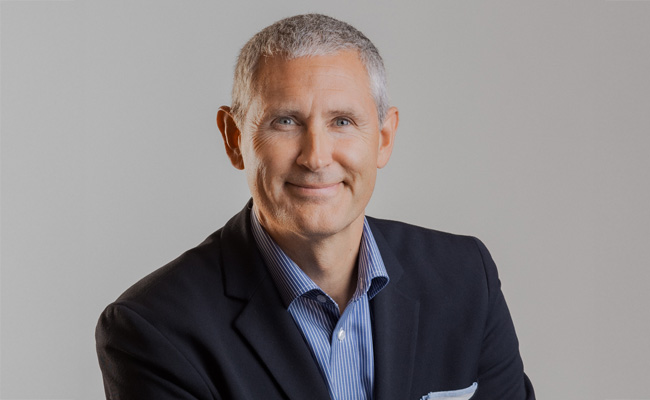There was almost nothing the market didn’t like about the news that Sun International had called off its R7.3bn bid to buy Peermont Holdings, owner of Gauteng’s Emperors Palace resort, after months of tortuous proceedings with the competition authorities.
The decision to drop the deal was made public on July 2 – a day after new CEO Ulrik Bengtsson took the reins from Anthony Leeming, who has taken early retirement. Sun shares rallied over 8% on the news and are up 17% over one month.
Bengtsson’s history at UK gaming group William Hill and Swedish-listed online gaming group Betsson AB is also, perhaps, a good indicator of where Sun International – which owns iconic legacy assets like Sun City – may direct its energies now. He spoke to Currency.
The market was certainly relieved that the deal isn’t going ahead – at least for now and in the form first mooted. Is Sun International also a bit relieved to have an out?
In one way, of course, having worked on this since 2023, there is a lot of strategic merit in this deal and I think those strategic merits are still there, but you get to a point where there is deal fatigue on both sides and that has contributed absolutely to that mutual decision. From where we are now, I’m relieved in the sense that we have clarity on how we move forward.
In terms of the competition authorities, do you think they’ve misjudged where the real competition is for gaming groups – in other words, from online players? Isn’t that where everything is at right now?
Clearly online is growing – not only in South Africa but all over the world. We’ve seen the explosion in the US since deregulation. And it’s not really different from any other product that we consume online these days – we want to consume products easily through our phones, regardless of what it is, so that’s a pretty normal development.
Having said that, casinos and resorts are also part of a bigger trend, which is: people like experiences, they like to travel. And those experiences are hotels, resorts, spas, golf courses and also casinos to some extent. So they have a role to play in that experiential part of the economy. And I think over time, as with everything else, to have a seamless experience for the customer between the online and offline experience is going to be very important.
So that is the environment, but do you think South African competition authorities are behind the curve. Arguably our regulation is also behind the curve. Isn’t that a risk too?
On the competition authority I don’t want to weigh in; I simply don’t know enough yet. On the regulatory side, it’s very important that regulation is done in the right way. The right way being that you need to take all [parties] into account to protect tax revenue, to protect employment opportunities and also customers. So responsible gambling from a customer protection perspective is really important and needs to form part of solid, modern regulation.
But also the company needs to be protected, and we have seen this across Europe, where the regulatory framework becomes a little bit distorted and it becomes an operating environment where the companies that have the licences are almost not able to operate. And you get competition from black-market operators that do not have licences and then the whole purpose of regulation fails because you don’t protect customers anyway.
So in an ideal world you work as an industry together with the regulators to form a regulation that works for everyone.
How did Europe find its way through this regulatory morass?
It varies hugely from country to country. Most countries in Europe have some form of regulation, but the success of it varies greatly. The key measurement we use is a techie sort of word: channelisation, which is the amount of total game play in the market that happens within regulation versus the amount that happens outside of regulation.
Ideally you want 100% within regulation and there’ve been some markets that did very well – like Denmark. And then you have a market like my home country, Sweden, where it’s completely failed and you have 50% of game play that now happens with black-market operators because you put things in place that make it very difficult to operate. So it’s a fine line to walk.
You talk about destinations and experiences still being important and that makes sense for a Sun City, say. But is it the same with an urban casino? Are those likely to be the casualties in a thrust towards online gaming, and are you looking at the Sun property portfolio with a more ruthless eye?
You have to build a total overall experience regardless of your location. I mean, look at our Time Square property – I was there for a huge concert; it was an enormously engaging environment, full with people. So for that instance, Time Square was an attractive asset, served around the concert.
It’s not always about the casinos. And to your other point, we will and we should constantly review all our businesses to make sure they are future proof and form a logical part of our portfolio.
But given your background at William Hill and your perspective as a newcomer to South Africa you may have a more clinical view of things. Have you been specifically tasked to offload some legacy assets?
On strategy, I’ll pass on that for now. But there’s no secret that with my background from running digital consumer services companies for 20 years, I am tilting towards the digital part of our business and I have big aspirations for that.
Do you think South Africa is ripe for it? Certainly, big international players like Hollywoodbets have arrived with a bang …
It’s a competitive market, but the market is growing faster than any European market, so in that sense there’s some traction for not only us but many of our competitors.
Have you been appointed for a defined term?
I don’t have a fixed-term contract so I’m here until further notice.
Sign up to Currency’s weekly newsletters to receive your own bulletin of weekday news and weekend treats. Register here.












